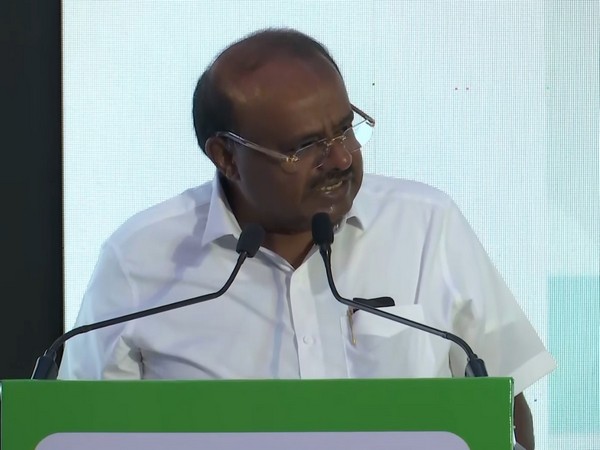India's Road to Electric Revolution: A Transformative Era for the Automotive Industry
Union Minister HD Kumaraswamy underscores the transformative potential of India's automotive industry, emphasizing the significant gains from electric mobility. He highlights the government's new policy promoting EV manufacturing, aiming to position India as a global leader with sustainable, economic growth.

New Delhi (India) July 16 (ANI) Union Minister of Heavy Industries HD Kumaraswamy has spotlighted the Indian automotive industry's transformative potential, emphasizing significant gains from embracing electric mobility. Speaking at the Society of Indian Automobile Manufacturers' (SIAM) event, Kumaraswamy declared, 'The Indian automotive industry is at the cusp of a transformative era.'
Kumaraswamy observed that the global shift towards electric vehicles (EVs) marks a significant revolution rather than a passing trend. 'This shift promises to redefine our relationship with a skilled and trained workforce,' he noted, highlighting India's stance as one of the global auto market leaders. Kumaraswamy added, 'It's a journey promising economic growth, environmental sustainability, and enhanced energy security.'
Elaborating on the prospects of electric mobility in India, Kumaraswamy outlined the substantial growth expected within the sector, driven by technological advancements, increasing consumer awareness, and supportive government policies. 'The government of India has initiated several measures to expedite the adoption of electric vehicles,' Kumaraswamy pointed out, citing India's new EV policy aimed at positioning India as a preferred manufacturing hub for cutting-edge EV technology.
The policy mandates a minimum investment of Rs 4,150 crore (USD 500 million), with manufacturers required to attain significant domestic value addition. By the third year of operation, at least 25% of vehicle parts must be locally sourced, escalating to 50% by the fifth year. For vehicles valued above USD 35,000, a 15% customs duty will be imposed for five years if manufacturers establish facilities in India within the specified time.
The policy's import limits will correlate with the investment made, capped at Rs 6484 crore or a maximum of 40,000 EVs if investments exceed USD 800 million, allowing unused import limits to be carried over. 'Our efforts ensure that India keeps pace with global trends while also leading in sustainable automotive transformation,' added Kumaraswamy. (ANI)
(With inputs from agencies.)
ALSO READ
PCAF and StepChange Collaborate to Transform Financial Sustainability in India
Youth Pioneering Peace and Sustainability at Iraq's International Youth Day Conference
Shein’s Sustainability Report 2023: Tackling Child Labour and Emissions Surge
Youth Drive Peace and Sustainability at International Conference in Iraq
Balancing Service Quality and Sustainability: Circular Economy Challenges in Global Hospitality










